Metaverso. It was the hottest topic at the end of 2021. And basically it couldn’t have been otherwise. Mark Zuckerberg, founder of Facebook (now Meta), has promised to create a virtual world that will forever change our concept of the Internet, allowing us to move from a flat use to a digital place in three dimensions that will resemble reality in all respects.
And here an important fact comes into play: the metaverse, right now, does not exist.
Not in this form.
Indeed, to be honest it will take a long time to be able to have a virtual planet in which to move, converse, work and shop.
However, this does not mean that there is absolutely nothing now. In reality today you can already have some experiences that anticipate the future a little. So let’s find out together how to enter the “metaverse”.
What is the metaverse?
It is a complex question. After all, it is a question of defining something that does not yet exist so for now we know what we would like the metaverse to be. Simplifying we could define the metaverse as a shared virtual space that is immersive, realistic and interactive, based primarily on augmented and virtual reality.
Up until now we have used the word “world” but, to be precise, it is not the most suitable term. In fact, within the metaverse there will be more worlds, just as in the universe there are more planets, more stars and more galaxies. Each virtual place will allow you to do activities that are positioned halfway between reality and what we now call “digital”.
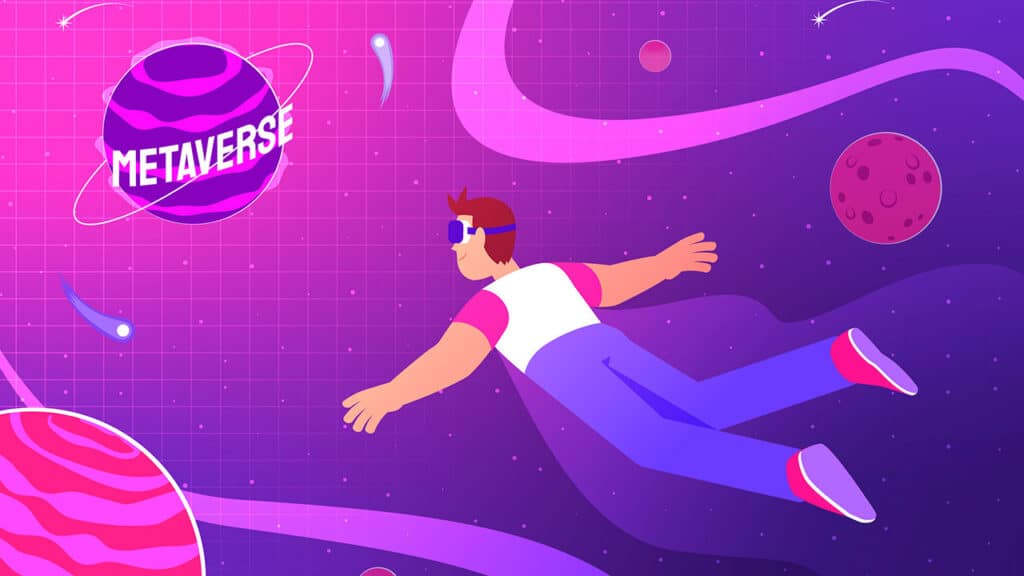 Photo credit: vectorpocket / Freepik
Photo credit: vectorpocket / Freepik
Let us give you a couple of examples.
Imagine a concert. Today either go see it in person or follow it from a screen. The metaverse allows you to have your avatar, controlled in real time by you, which can stand under a virtual stage, shout at the singer, interact with other fans and enjoy an experience that is very similar to being physically present.
Think about shopping now. Also in this case the options are basically two: leave the house and go to a shop or open an e-commerce on smartphone, tablet and PC and choose what to buy. The metaverse will allow you to mix these two things so you can use virtual reality to go to a physical store, see the clothes and then buy them as if you were on a website.
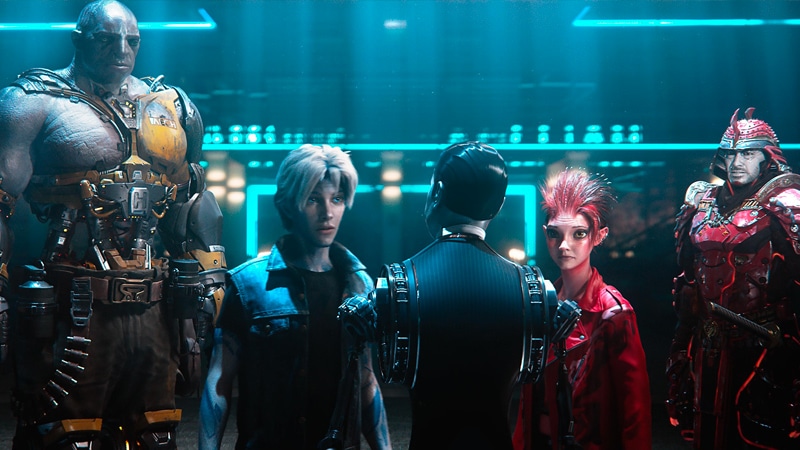 OASIS, Ready Player One
OASIS, Ready Player One
If you think about all this it’s not that unusual for us. The metaverse is not that different from OASIS, the virtual world of Ready Player One. The Matrix, Tron, and even the TV series Upload can also somehow describe the future we are trying to build.
“We are” because all of us, with our data and our desire for sharing and immersion, contribute to its birth.
“We are” because Meta is not the only company that has worked to build the metaverse. Microsoft, Google, Disney, Adidas, Nike, Hyundai… the list of companies that promptly got to work is getting longer by the day.
Our advice therefore is to keep an eye on this trend because, at some point, our conception of digital will forever change.
How to enter the metaverse
If we wanted to take the red pill today and enter the rabbit hole, what would we find?
There are a number of experiences that we can do right away and that somehow come close to what will be.
All it takes is an app to get started
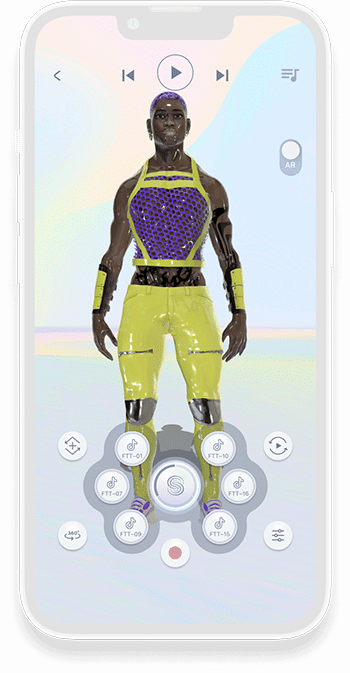 Sensorium Galaxy
Sensorium Galaxy
The simplest is called Sensorium Galaxy and it is an application available on both iOS and Android, totally free. It is a software that uses augmented reality and artificial intelligence to give life to a fairly realistic character you can talk to. At the moment it only works in English, which makes conversation a little less natural for non-English speakers, but it’s a window into the future.
Try to think of a video game, one of those in single-player where there is only you and computer-created non-playable characters (NPCs). Usually interactions with these NPCs are scripted so someone has already decided what you will ask and what they will respond to. Sensorium Galaxy technology would allow you to create characters who can interact freely with you.
Now imagine all of this translated into the metaverse. In addition to being populated by real people, the digital universe could include NPCs to talk to, to ask for information. That’s why Sensorium Galaxy gives you a little taste of the future.
Video games like the metaverse?
Let’s go back to talking about video games because in reality I’m a little the antechamber of the metaverse. On the one hand, software houses have the power to create worlds in which we already spend time, in which we already interact with other human beings. On the other hand, they are those who push technology in the direction we need. The gaming giants already know what it means to have servers that allow access to millions of people, they already know how to use virtual reality and every day they push companies to improve the hardware so as to offer players more and more realistic experiences. And this is true for small and often overlooked components – such as processors – as well as for more massive products, such as virtual reality headsets that are likely to become the first true gateway to the metaverse.
Today, however, we must be content with experiences that are a little simpler but no less interesting. Let’s take for example Roblox. It was born as a game and today it is a global platform which allows players to create their own interactive experiences, to earn Robux (the game currency that can be converted into euros) and to interact with other players. In short, it already has many of the characteristics that we attribute to the metaverse and is even used to offer subscribers unique experiences. Gucci created here a virtual garden to celebrate the brand’s 100th anniversary while the NFL (National Football League) decided to bring about Roblox instead an official store to sell virtual decorative items with which gamers can adorn their avatars.
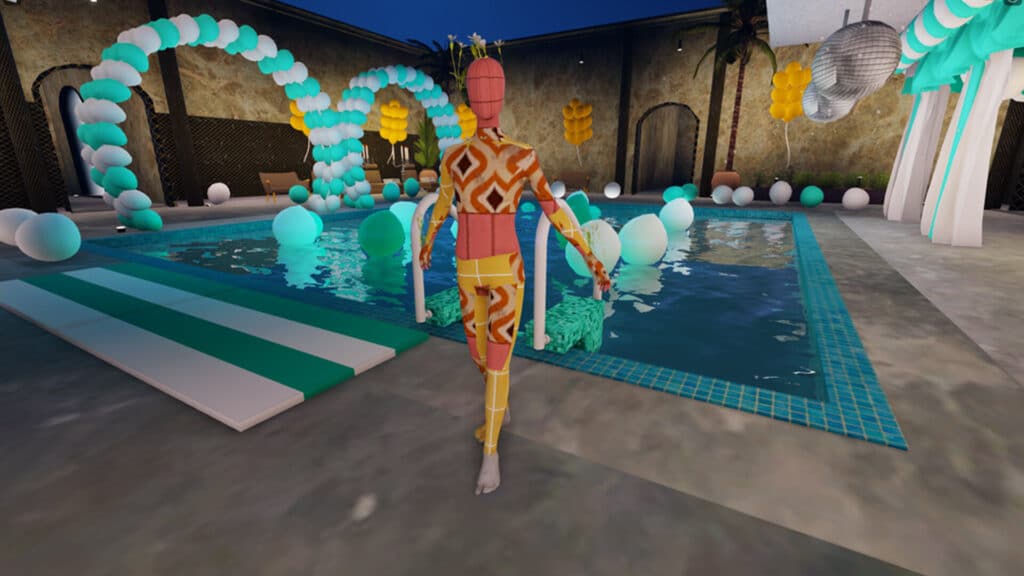 The Gucci Garden inside Roblox
The Gucci Garden inside Roblox
Some metaverse vibrations are also offered by the famous one Fortnite, which hosted the virtual concerts of Ariana Grande, Travis Scott and Marshemello.
There are also realities that are even closer to our idea of the Metaverse. The Sandbox it is perhaps the most concrete example. We are in fact facing a platform that looks like a video game but that it is populated by users who can buy territories, visit places and use objects of various kinds.
The peculiarity is that everything you find is created by the community, as happens in the real world. But there is more. The world of The Sandbox is connected to the blockchain of the cryptocurrency Ethereum e each object is practically an NFT that can be bought or exchanged with other users. However, Ethereum is not the dominant currency. The creators of The Sandbox came up with an ad hoc cryptocurrency, called SAND, which can be used on and off the platform, which is why it will be necessary to create your own virtual wallet during registration.
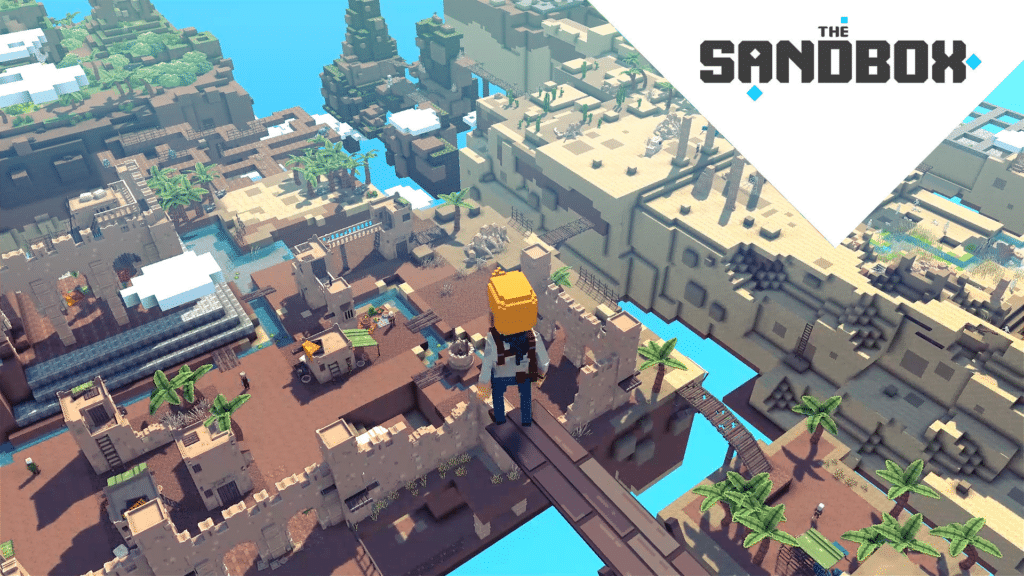 The Sandbox
The Sandbox
The Sandbox, however, is not unique in its kind, there are other similar platforms such as Axie Infinity, Illuvium and Decentraland.
Working in the metaverse
The metaverse is not just fun and entertainment. The virtual can also be used to work. That’s why Meta launched Horizon Workrooms, already available for free for Oculus Quest 2, Zuckerberg’s VR headset.
It works both via virtual reality and on the web and was meant for help teams collaborate and communicate remotely using all the latest generation technologies. Not only does it allow you to create your desk to find yourself in a familiar environment, but it allows you to have an avatar who can interact with others, to use spatial audio to make the experience realistic, to use digital meeting rooms and to take advantage of a sort of virtual whiteboard where everyone can take notes and draw using the Quest 2 controller.
Need to meet someone who doesn’t have a VR headset? If it has a microphone and a camera, all you have to do is provide it with the link for the connection, like a normal video chat on Zoom, Teams and the like.
Alongside all this technology we find however serious privacy measures: conversations held in the Workroom are not used for targeted advertising on Facebook, images and videos of your physical environment are only saved locally and no one can view your computer screen during the Workroom sessions.
The characteristics of the metaverse
The Sandbox and Horizon Workrooms really look a lot like our idea of the metaverse but, on balance, they don’t have all the necessary features. So what are the indispensable elements?
First of all, the metaverse is boundless. There are no barriers, there are no space limits, there is no maximum number of people that can accommodate, there are no activities that cannot be carried out.
This internet of the future is persistent. It cannot be disconnected, reset or restarted. Everyone can access anytime and anywhere and it will evolve over time thanks to the contribution of those who live there.
Another key feature is the decentralization. The metaverse shouldn’t be owned by a company or a single platform. It should be everyone’s, hence The Sandbox’s choice to aim for the blockchain to ensure that everything remains fully and publicly traceable.
The metaverse is immersive. Virtual and augmented reality will therefore be a focal point in the creation of this great technological innovation which, over time, will improve even more to be able to stimulate all our senses.
There are two further characteristics of the metaverse: the virtual economy, which moves companies and people and which could be based on the use of cryptocurrencies, e sociability, because a digital world without people who animate, live and shape it makes no sense to exist.
Have patience
We have been thinking about the metaverse for decades.
In 1984 the novel Neuromancer was released, a masterpiece by William Gibson that talked about cyberspace.
In 1999 the Matrix landed in cinematrographic theaters, with the Matrix resembling an extremely advanced version of the metaverse.
In 2003 Second Life began, which still lives and struggles to claim its primacy as an alternative virtual platform.
In short, a universe …






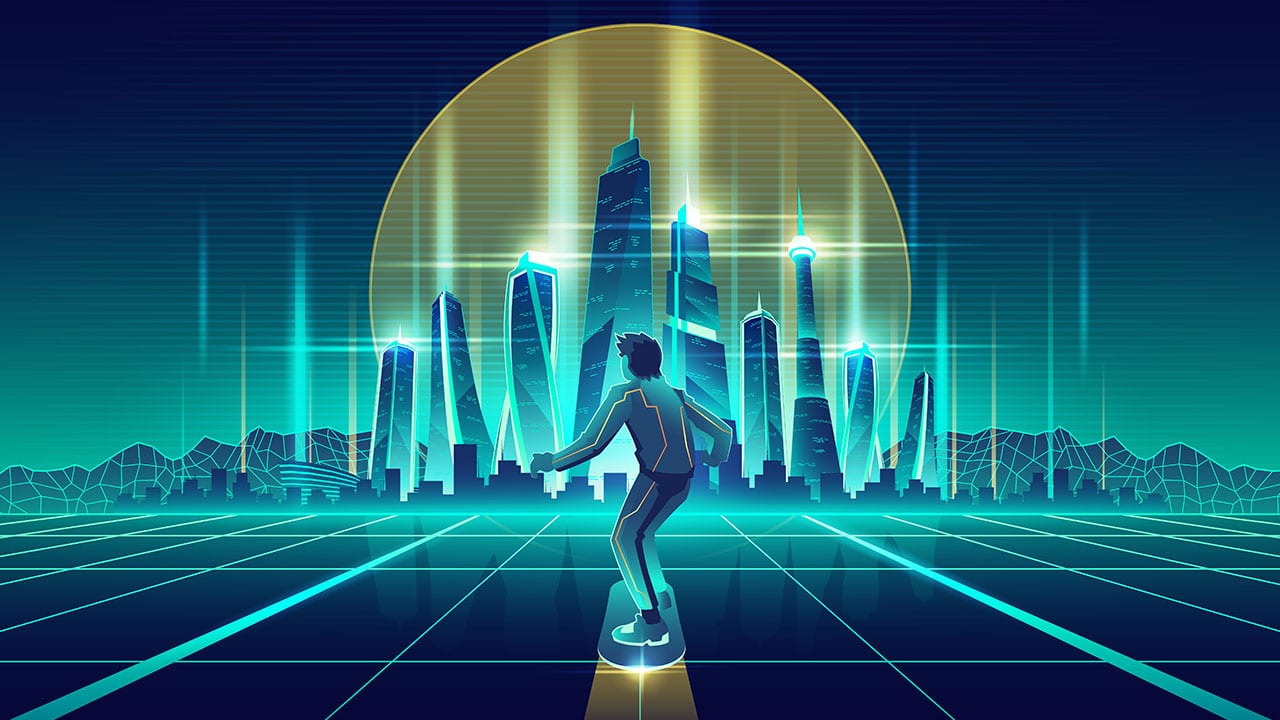








Leave a Reply
View Comments